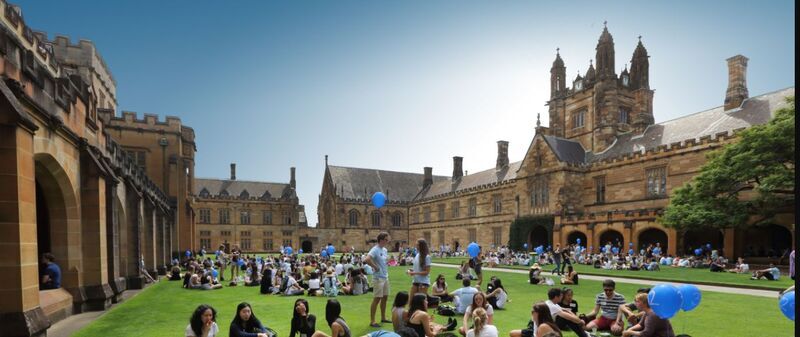
Eight presidential directives on Labor Day for decent life of all social strata
President Abdel Fattah El Sisi issued eight directives on the Labor Day to ensure providing ...

The University of Sydney was ranked the second globally in the 2020 Times Higher Education Impact Rankings and the first in Australia for addressing environmental and inequality issues within the framework of the United Nations Sustainable Development Goals (SDGs).
The rankings, now in their second year, measure how an institution’s research, outreach and stewardship is delivering against the SDGs – a blueprint to achieve a better and more sustainable future for all.
This outstanding achievement follows Sydney’s performance in the inaugural University Impact Rankings last year when it was ranked the 25th in the world.
The impact ranking recognizes achievements in working collaboratively on real-world projects and aspirations as well as good governance and transparency.
University of Sydney Vice-Chancellor and Principal Dr Michael Spence said “Our founders created Australia’s first university in recognition of the importance of education in driving societal change and that continues to be a central focus through our research and education.”
“The contribution universities make has never been more important – with climate change, unprecedented bushfires and the coronavirus affecting us all. It’s our staff, along with students, who are working tirelessly with colleagues around the world, with industry, community and with government to solve these unprecedented challenges and I’m thrilled they have been recognised and acknowledged with this ranking.”
The rankings are calculated on the top three SDGs submitted, along with SDG 17, which is centered on collaboration; the University of Sydney performed particularly well in SDG 11 “sustainable cities and communities” and SDG 8 “decent work and economic growth.”
The university engaged in partnership work which has ranged from a trip by students to Pune, India, last year to work with Tech Mahindra on AI in order to address air pollution, water management and drought as one of our Industry and Community Partnership Units (ICPUs); to events such as the Sydney Summit II, which brought together our global partners, focused on international collaboration to promote and measure our contribution to achieving the SDGs.”
The Business School is a signatory to the Principles for Responsible Management Education and is working to advance all of the SDGs into their education, research and operations during 2019-2024.
There are 17 SDGs as part of the UN’s 2030 Agenda for Sustainable Development; they build on the ambitious Millennium Development Goals whose success included halving extreme poverty ($US1.25/day) and combating HIV/AIDS. The goals focus on the twin existential issues of safeguarding our environment, while addressing poverty/inequality by supporting livelihoods of the vulnerable through sustainable development.
The University of Sydney recently produced a high-level Sustainable Development Goals update and is working on a sustainability strategy expected to be released this year.
The Business School is a signatory to the Principles for Responsible Management Education (PRME) and is working to advance all of the SDGs into their education, research and operations during 2020-2025.
Sydney Environment Institute director, Professor David Schlosberg said: “It is heartening to see the important and broad work on sustainability at the University get this kind of recognition.”
“The proposed sustainability strategy will make this work more visible to the campus community and put some of our best research into practice in the everyday life of the campus,” Professor Schlosberg said.
Dr Spence concludes: “Throughout our history, our research has been integral in shifts such as the global decline in smoking and moves towards gender equality in our workplaces, including in our military. In education, our aim is to set up students to thrive and lead in a changing environment.”
President Abdel Fattah El Sisi issued eight directives on the Labor Day to ensure providing ...
Paysky, the leading digital payment solutions provider, was named among Forbes Top 50 Fintech companies ...
Ligia Noronha , Head of New York Office of the United Nations Environment Program (UNEP), ...


اترك تعليقا